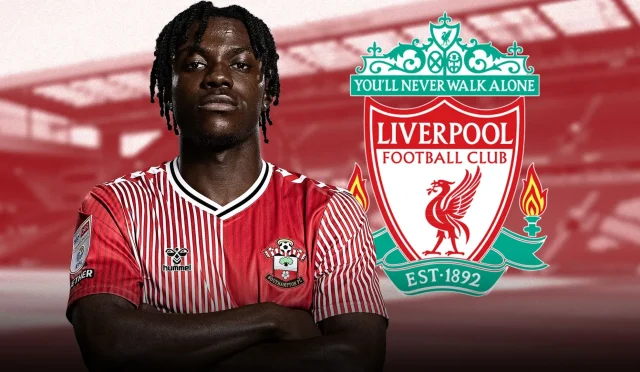Johan Cruyff, a celebrated Dutch football legend, left an indelible mark on the world of soccer through his innovative style of play and his contributions to the game. Born on April 25, 1947, in Amsterdam, Cruyff became synonymous with the philosophy of ‘total football’—a game-changing approach that emphasized fluidity and versatility. His time at Ajax football club saw him win multiple championships, including three European Champions Cups, solidifying his status as a key figure in football history. Later, at FC Barcelona, Cruyff not only excelled as a forward but also revolutionized the club, leading them to significant victories during his tenure. Beyond the pitch, Cruyff’s dedication to football philanthropy demonstrates his commitment to nurturing future generations of players and promoting the sport’s values.
In the realm of soccer, few names resonate as strongly as Johan Cruyff, a titan of the sport renowned for revolutionizing play with his artistic flair. This iconic figure not only represented the Netherlands on the international stage but was also instrumental in establishing the principles of ‘total football,’ which captured the hearts of fans and players alike. His illustrious career at Ajax and subsequent success with FC Barcelona showcased his unparalleled talent and leadership qualities. Furthermore, Cruyff’s legacy extends beyond his playing days; his efforts in football philanthropy and sports education via the Johan Cruyff Institute continue to inspire aspiring athletes around the globe. The influence of this outstanding player and coach on modern soccer is undeniable, echoing through the generations.
The Legacy of Johan Cruyff in Dutch Football
Johan Cruyff’s impact on Dutch football is immeasurable, reinforcing his status as a national icon. His early years at Ajax football club were where Cruyff honed his skills and developed his innovative style of play. Under the guidance of coach Rinus Michels, he became synonymous with ‘total football’, a tactical approach that allowed players to fluidly interchange positions and maintain possession. This philosophy redefined the way football was played, not just in the Netherlands but globally, inspiring future generations of players and coaches alike.
Cruyff’s achievements with Ajax speak volumes about his talent and dedication. Winning six league titles and three prestigious European Cups between 1966 and 1973, he laid the foundation for Ajax football club’s dominance in European football. His ability to orchestrate plays, coupled with his dynamic playing style, made him a pivotal figure in the team’s successes, showcasing the potential of home-grown talent and the effectiveness of a well-disciplined youth development system.
Total Football: The Tactics that Defined an Era
The tactical system of total football is deeply intertwined with Johan Cruyff’s legacy. Developed by Rinus Michels, this strategy emphasized ball control, positional interchange, and collective teamwork, which required players to be versatile and adept at both attacking and defensive roles. Cruyff was not just a participant; he was a revolutionary who exemplified this philosophy during his time with the Dutch national team and at Ajax. His ability to read the game and make instant decisions under pressure illustrated the core tenets of total football.
This innovative approach led to remarkable success, most notably during the 1974 World Cup, where the Netherlands captured the world’s attention. Although they did not win the final against West Germany, Cruyff’s performance throughout the tournament earned him the Golden Ball as the tournament’s best player. His mastery of total football showcased the Dutch style of play, making it a defining element of football history and influencing the future directions of coaching and tactical formations.
Johan Cruyff’s Distinguished Career at FC Barcelona
Joining FC Barcelona in 1973 marked a significant turn in Johan Cruyff’s career and in the history of the club itself. Under Cruyff’s leadership on the pitch, Barcelona began to shift from a traditionally conservative style to a more attacking and fluid game. His influence was profound; in his first season, he helped the team secure the Spanish League championship in 1974, re-establishing Barcelona as a formidable force in Spanish football after a period of struggle.
Cruyff’s impact at Barcelona extended beyond his playing days. After retiring as a player in 1984, he took over as head coach in 1988, where he continued to implement innovative tactics that would lead the club to immense success, including the European Cup in 1992. His philosophy laid the groundwork for what is now recognized as the ‘Barcelona way’, emphasizing skillful play and tactical awareness, which continues to influence the club’s approach to the game today.
The Philanthropic Spirit of Johan Cruyff
Beyond his contributions to football, Johan Cruyff was a passionate philanthropist, dedicated to giving back to the community. He established a nonprofit organization aimed at encouraging children to engage in sports, emphasizing the importance of physical activity and teamwork. This initiative reflects Cruyff’s belief in the positive impact of sport on personal development and social inclusion, demonstrating his commitment to using football as a means for social change.
Additionally, the Johan Cruyff Institute plays a vital role in educating future leaders in sports management, continuing his legacy off the field. Through this institution, Cruyff ensured that the values and lessons he learned throughout his career could be passed on to others, correlating sport with educational development. His philanthropic efforts embody the essence of legacy in football – one that transcends mere accolades and titles.
Cruyff’s Influence on Modern Football Tactics
Johan Cruyff’s influence on modern football tactics is undeniable and has left an indelible mark on the game. Many contemporary coaching philosophies can be traced back to the principles of total football that Cruyff exemplified. Coaches around the world study his play strategies and management style to cultivate their teams in ways that emphasize fluidity and creativity in play. His approach has shaped many successful footballing nations, encouraging teamwork, individual skill, and strategic versatility.
Furthermore, with his unique vision of the game, Cruyff has inspired a new generation of coaches and players. The tactical innovations that he introduced have become fundamental aspects of player development. From youth academies to professional leagues, the emphasis on creativity and positional interchanging continues to manifest in various football styles, making Cruyff an enduring figure in the evolution of the sport.
Johan Cruyff’s Cultural Impact Beyond Football
Johan Cruyff’s cultural impact extends far beyond the confines of football. He became a symbol of Dutch pride and a global ambassador for the sport. His philosophy of ‘thinking football’ resonated with fans and players alike, sparking discussions not only about tactics but about the very essence of the game. His charismatic persona and outspoken nature made him a beloved figure in the media, further amplifying his influence beyond the pitch.
Moreover, Cruyff’s contributions to football created a cultural shift that celebrated not just winning, but the enjoyment of the game itself. His trademark moves and unorthodox strategies popularized a style of play that was entertaining and accessible, making football more relatable to the general public. This cultural fervor surrounding Cruyff has cemented his status as a legend, echoing his philosophy of beauty in the game.
A Tribute to Cruyff: Remembering His Achievements
As we reflect on Johan Cruyff’s remarkable life, the multitude of his achievements stands testament to his greatness. Not only did he clinch three European Footballer of the Year awards, but his legacy as one of the most influential players in football history is unmatched. Each accolade he earned, whether with Ajax or Barcelona, illustrates a career characterized by excellence, creativity, and a passion for the sport that inspired millions around the world.
Moreover, the enduring influence of Johan Cruyff is evident in the tactical evolution of football as a whole. His innovative ideas laid the groundwork for future generations, ensuring that the principles of creativity and dynamic play remain central to the fabric of the game. Cruyff’s legacy will live on, inspiring players, coaches, and fans for years to come, as the beauty of football continues to thrive in the spirit he embodied.
The Johan Cruyff Philosophy: Football as a Way of Life
Johan Cruyff’s philosophy on football extended beyond mere tactics; it was a way of life. He believed that football could teach valuable lessons about resilience, teamwork, and creativity. This belief spurred his dedication to coaching, where he emphasized not only the importance of skill but also the need for a player’s mental approach to the game. His famous quote, ” soccer is everywhere; it is in the streets, in parks, and in all of us”, encapsulates his understanding of the game’s universal appeal and impact.
His ideology reflects his belief in the power of sports to transform lives. Through initiatives aimed at youth engagement in football, Cruyff championed the idea that sports can play an integral role in personal development and community building. His commitment to fostering a love for the game in young people is a core aspect of his philosophy, asserting that football is not just a sport, but a vital element of human expression and connection.
Exploring Cruyff’s Lasting Influence on Ajax Football Club
Exploring Johan Cruyff’s profound relationship with Ajax football club reveals the roots of his footballing genius. From his early arrival as a youth player to his ascent as a senior team member, Cruyff’s evolution was mirrored by Ajax’s growth as a powerhouse of European football. His commitment and performance, laden with creativity and skill, were instrumental in setting the club on a path of unprecedented success both locally and internationally.
Cruyff’s vision and tactical innovations left a permanent imprint on Ajax’s youth development philosophy, encouraging the club to prioritize nurturing talent through effective systems. The ‘Cruyff legacy’ continues to inspire current players and coaches at Ajax, emphasizing the importance of maintaining both tactical discipline and creative expression in the pursuit of sporting excellence. This intergenerational connection solidifies Cruyff’s significance within the club and further strengthens Ajax’s identity as a cradle of footballing elite.
Frequently Asked Questions
What impact did Johan Cruyff have on FC Barcelona?
Johan Cruyff transformed FC Barcelona during his tenure as a player and later as a coach, introducing the philosophy of total football and a style of play focused on possession and creativity. His leadership helped Barcelona secure their first Spanish League championship in 1974, and later he established the foundation for the club’s future successes.
How did Johan Cruyff’s philosophy influence Ajax football club?
At Ajax football club, Johan Cruyff was integral in the development of total football, a tactical approach that emphasized fluid movement and collective teamwork. His legacy at Ajax includes multiple league titles and European championships, as he was pivotal in honing the club’s youth talents and promoting an attacking style.
What are Johan Cruyff’s contributions to football philanthropy?
Johan Cruyff was a dedicated philanthropist who founded the Johan Cruyff Foundation, aimed at promoting sports participation among children. His contributions to football philanthropy highlight his belief in using sports as a tool for development and social change, focusing on creating opportunities for youth.
Why is Johan Cruyff considered a legend in Dutch football?
Johan Cruyff is celebrated as a Dutch football legend due to his exceptional skill, innovative playmaking, and leadership. He revolutionized the game with total football, led the Dutch national team to the 1974 World Cup final, and remains an iconic figure in Dutch football history.
What awards did Johan Cruyff win during his career?
Throughout his illustrious career, Johan Cruyff won numerous accolades, including the European Footballer of the Year award three times (1971, 1973, and 1974), and he was awarded the Golden Ball at the 1974 FIFA World Cup, recognizing him as the tournament’s most valuable player.
How did Johan Cruyff change the game of football?
Johan Cruyff changed football through his introduction of total football, a revolutionary style emphasizing versatility and intelligence on the pitch. His innovative tactics influenced generations of players and coaches, shaping modern football’s strategies and training methods globally.
What legacy did Johan Cruyff leave behind?
Johan Cruyff’s legacy includes not only his remarkable playing and coaching career but also his contributions to football philosophy, youth training methods, and his philanthropic efforts. His impact continues to inspire players and coaches, establishing him as a key figure in the sport’s history.
| Key Points |
|---|
| Johan Cruyff was born on April 25, 1947, in Amsterdam, Netherlands, and passed away on March 24, 2016, in Barcelona, Spain. |
| Cruyff was a prolific forward known for his imaginative playmaking skills, winning multiple honors including the European Footballer of the Year award three times. |
| He began his career with Ajax, winning six league titles, four national cups, and three European Champion Clubs’ Cups. |
| In 1973, Cruyff transferred to FC Barcelona, where he led the team to a Spanish League title and two runner-up finishes. |
| Cruyff was instrumental in the Dutch national team’s success in the 1974 World Cup, earning the Golden Ball as the tournament’s MVP. |
| He played in the North American Soccer League and was named MVP in 1979 before returning to Europe. |
| After retirement, he coached Ajax and Barcelona, winning multiple prestigious titles including the European Cup Winners’ Cup. |
| Cruyff was a philanthropist who founded programs to promote sports among children and sports management education. |
Summary
Johan Cruyff, a legendary figure in football, left an indelible mark on the sport through his innovative play and remarkable achievements. His unique style and leadership on the field not only captivated fans but also redefined football tactics globally. Despite his passing in 2016, Cruyff’s legacy continues to inspire generations, solidifying his status as one of the greatest footballers of all time.








